Etaf Rum, author of “A Woman Is No Man,” recommends novels about families that span centuries
Family stories are key ways for communities to stake a claim of their history and culture. In my multigenerational novel, A Woman Is No Man, I am attempting to give voice to an Arab American family, which has been historically underrepresented in literature, and to bring the family to life by making visible their untold stories.
Isra, one of the novel’s main characters, packs only one book with her when she moves from Palestine to the New York: One Thousand and One Nights, which is perhaps the greatest Arabic, Middle Eastern, and Islamic contributions to literature and an unparalleled example of the power of story-telling. In an attempt to delay her ordered beheading, Scheherazade, a well-read young woman, tells stories to the king who has both married and sentenced her. For 1,001 nights Scheherazade tells one tale after another, keeping herself alive by using stories to entertain, intrigue and soften the king’s heart, showing us what we’ve known for centuries since: the power of storytelling to shape and reclaim our own narrative. In some ways, Isra, and then her eldest daughter, Deya, are also using stories to fight for their lives.
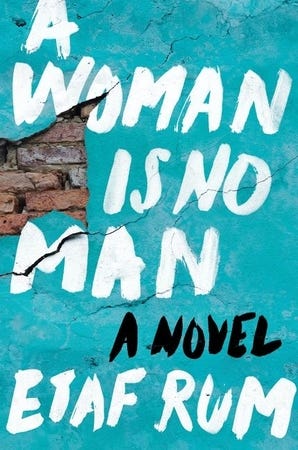
A Woman Is No Man was written to give a voice to the people of my community who are often misunderstood and rarely heard from directly. In doing so, I am attempting to address injustices both within my community and in the way my community is ignored and stereotyped in both the world of literature and the world at large. The primary characters of A Woman Is No Man are women who have been excluded from telling their own stories due to gender roles, their ethnicity, and strict cultural norms; it was crucial to me that these same characters shape the narrative. As Deya, in contemporary Brooklyn, approaches both her high school graduation and an arranged marriage, she struggles to figure out a future for herself worth fighting for. Though well meaning, Deya’s grandmother Fareeda has been shaped by her own traumatic past, and Fareeda tries desperately to conceal family secrets from Deya, both fearing Deya will follow in her mother Isra’s footsteps and fearing that she will not.
Like any writer, I have been inspired by so many books that came before mine, and A Woman Is No Man owes a debt of gratitude to the many other multigenerational sagas that also use storytelling as a way to bring new and diverse voices to the literary world. Here are a few of the ones that have mattered the most to me:

Middlesex by Jeffrey Eugenides
Jeffrey Eugenides’ Middlesex spans three generations of the Greek-American Stephanides family, who travel from a tiny village overlooking Mount Olympus in Asia Minor to Prohibition-era Detroit. The novel is narrated by Calliope Stephanides, an intersex person trying to make sense of gender in the world.
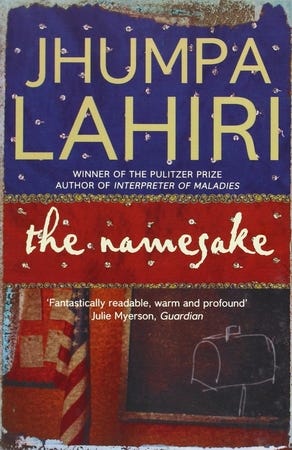
The Namesake by Jhumpa Lahiri
Jhumpa Lahiri’s The Namesake takes the Ganguli family from their tradition-bound life in Calcutta through their fraught transformation into Americans. The novel centers on a Bengali couple, Ashoke and Ashima, who move to the U.S. in the 1960s, and their son, Gogol, who wrestles with his identity as the Indian American bearer of a Russian name and must come to terms with his place in the world.
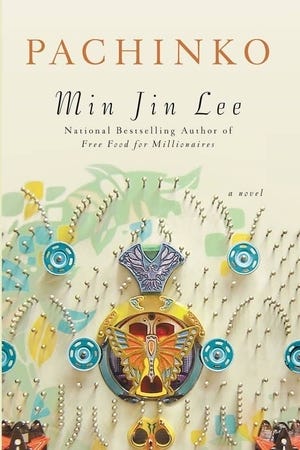
Pachinko by Min Jin Lee
Korean American author Min Jin Lee’s Pachinko begins in 1920s Korea with Sunja who gets pregnant out of wedlock, marries a minister and moves to Japan to save her family honor. Spanning four generations, the novel explores the situation of Koreans living in a hostile Japan.
Min Jin Lee Recommends 5 Books By Women
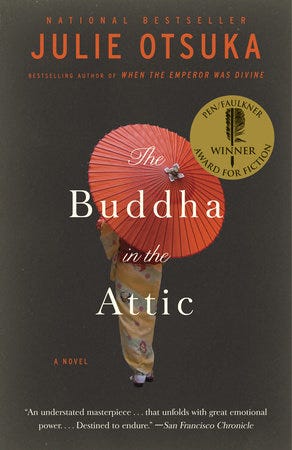
The Buddha in the Attic by Julie Otsuka
Julie Otsuka’s The Buddha in the Attic weaves together a collective story by following a group of Japanese picture brides across the Pacific to California, where they discover that their husbands are not at all what they were told.
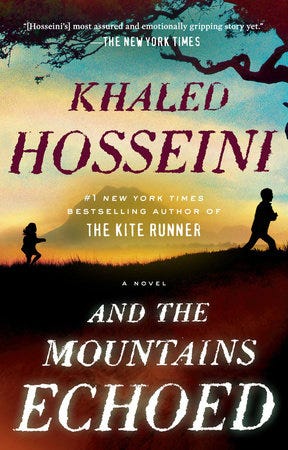
And The Mountains Echoed by Khaled Hosseini
Khaled Hosseini’s third novel, And The Mountains Echoed, spans several generations and alternates between Afghanistan and the West, grappling with many of the same themes of his earlier works: parent-children relationships, the many ways in which the past can come back to haunt us, and Afghanistan’s cycle of trauma and sadness.
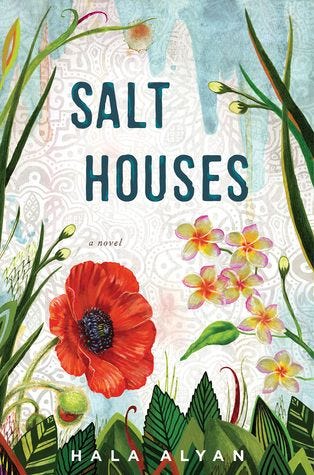
Salt Houses by Hala Alyan
Salt Houses is a powerful and poetic multigenerational story about displacement. The novel starts in Nablus, Palestine in 1963 and branches into Jordan, Kuwait, Beirut, Paris and Boston. A compelling and emotional read that showcases the art of storytelling with precise prose.
The Many Faces of the Palestinian Diaspora
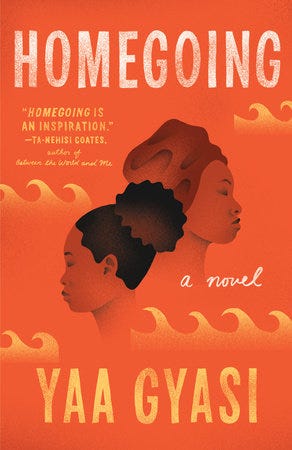
Homegoing by Yaa Gyasi
Homegoing explores the damaging effect of the slave trade on a family split between the U.S. and the Gold Coast of Ghana across 200 years. The novel follows two sisters who grow up in different 17th-century Ghanaian villages, tracing the two women’s families for the next few centuries as they navigate both sides of the Atlantic.

About the Author
Etaf Rum was born and raised in Brooklyn, New York, by Palestinian immigrants. She teaches college English literature in North Carolina, where she lives with her two children. She also runs the Instagram account @booksandbeans. A Woman Is No Man is her first novel.


7 Multigenerational Sagas was originally published in Electric Literature on Medium, where people are continuing the conversation by highlighting and responding to this story.
Source : 7 Multigenerational Sagas










